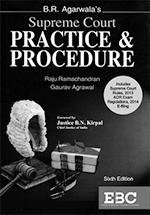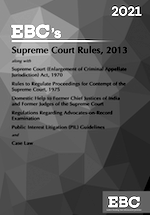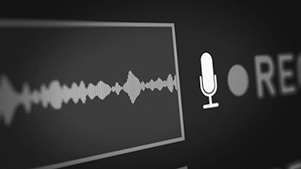Advocate-on-Record Examination: A Crash Course [c2]
Enrollment is Closed
To practice before the highest court of the land is a privilege. The first step to achieve this is to be an Advocate-on-Record. The Supreme Court's Advocate-on-Record examination is one of the toughest examinations and is held under the general supervision of a committee of three Supreme Court Judges to be appointed by the Chief Justice of India. Only an Advocate on Record can file and plead a case before the Supreme Court. The papers for this examination are set by the Board of Examiners which is nominated by the Committee of three judges. This Board of Examiners is of senior lawyers practising before the Supreme Court. They not only set the papers but also evaluate them. To clear this examination, which comprises four papers requires sincere and methodical preparation. The four papers are 1) Practice and Procedure of the Supreme Court, 2) Drafting & Advocacy, 3) Professional Ethics and 4) Leading Cases. This course comprises 10 live classes, by Dr Charu Mathur, and 32 recorded lectures from our rich video library, delivered by Mr Namit Saxena (2nd Rank Holder in AOR Exam 2019). Recordings of live classes will also be provided. In this 2-week live course, we will take you through what it takes to crack this prestigious examination. Like any other examination, it is crucial to know how to prepare and write the paper. So, come with us and let the experts guide your preparation for the AOR examination.Important Dates
CLASS TIMINGS
About
See Live Class Details
Enrollment is Closed
- I. E-Book & Student Lounge
- a) Visit student lounge
- b) E-Books
- II. Exam Notification
- ◆ AOR Exam Notification
- WEEK 1: PAPERS 1 & 3
- W1 Live Class 1: Paper 1 (Practice & Procedure)
- ◆ LIVE CLASS 1 (Mon 6th Dec at 6 pm)
- ◆ LIVE CLASS 1 RECORDING
- Video 1: Welcome
- Video 2: Who is an advocate-on-record?
- Video 3: Eligibility criteria
- Video 4: Exemptions
- Video 5: Pattern of the examination
- Video 6: Tips for preparation
- Video 7: Preparation for practice and procedure
- W1 Live Class 2: Paper 1 (History, Language & Jurisdiction)
- ◆ LIVE CLASS 2 (Tue 7th Dec at 6 pm)
- ◆ CLASS 2 RECORDING
- Video 8: Origins of the Supreme Court
- Video 9: The Federal Court
- Video 10: Constituent Assembly and dawn of the Constitution
- Video 11: The Supreme Court
- Video 12: Appellate jurisdiction of the Supreme Court
- Video 13: Original jurisdiction
- Video 14: Advisory jurisdiction
- Video 15: Language
- W1 Live Class 3: Paper 1 (Jurisdiction Cont., Decrees and Orders, Contempt, PIL & Doctrine of Merger)
- ◆ LIVE CLASS 3 (Wed 8th Dec at 6 pm)
- ◆ CLASS 3 RECORDING
- Video 16: Review and curative petition: Inherent and plenary jurisdiction
- Video 17: Contempt jurisdiction
- Video 18: Jurisdiction under Supreme Court (Decrees and Orders) Enforcement Order, 1954
- Video 19: Supreme Court (Enlargement of Criminal Appellate Jurisdiction) Act, 1970
- Video 20: Article 136 and the doctrine of merger
- Video 21: Matters of public interest
- W1 Live Class 4: Paper 1 (CPC, CrPC, Limitation Act, Court Fees, modification/clarification)
- ◆ LIVE CLASS 4 (Thur 9th Dec at 6 pm)
- ◆ CLASS 4 RECORDING
- Video 22: Article 137 and application for modification/ clarification
- Video 23: Limitation
- Video 24: Court fees
- Video 25: Answering Practice and Procedure paper
- W1 Live Class 5: Paper 3 (Professional Ethics & Advocacy)
- ◆ LIVE CLASS 5 (Fri 10th Dec at 6 pm)
- ◆ CLASS 5 RECORDING
- Video 26: Preparing for Professional Ethics and Advocacy
- WEEK 2: PAPERS 2 & 4
- W2 Live Class 6: Paper 2 (Drafting)
- ◆ LIVE CLASS 6 (Mon 13th Dec at 6 pm)
- ◆ CLASS 6 RECORDING
- ◆ Live Lecture Recording on Drafting Special Leave Petitions
- Video 27: Drafting preliminaries
- Video 28: Drafting rules for executing vakalatnama
- W2 Live Class 7: Paper 2 (Drafting Cont.)
- ◆ LIVE CLASS 7 (Tue 14th Dec at 6 pm)
- ◆ CLASS 7 RECORDING
- Video 29: General rules for drafting/filing
- Video 30: Answering the Drafting paper
- W2 Live Class 8: Paper 4 (Leading Cases)
- ◆ LIVE CLASS 8 (Wed 15th Dec at 6 pm)
- ◆ CLASS 8 RECORDING
- ◆ Live Lecture Recording on Preparing of Leading Cases
- Video 31: Preparing for Leading Cases
- W2 Live Class 9: Paper 4 (Leading Cases Cont.)
- ◆ LIVE CLASS 9 (Thur 16th Dec at 6 pm)
- Video 32: Conclusion
- W2 Live Class 10: Paper 4 (Leading Cases Cont.)
- ◆ LIVE CLASS 10 (Fri 17th Dec at 6 pm)
- ◆ CLASS 10 RECORDING
- III. Leading Cases Webinars
- ◆ Recording: T.M.A. Pai Foundation v. State of Karnataka, P.A. Inamdar v. State of Maharashtra, Pramati Educational and Cultural Trust v. UOI
- ◆ Recording: Joseph Shine v. Union of India
- ◆ Recording: Ssangyong Engineering v. NHAI
- ◆ Recording: Balram Prasad v. Kunal Saha
- ◆ Recording: Focussed Session on Tribunalisation
- ◆ Recording: Sharad Birdhichand Sarda v State of Maharashtra and Sushila Aggarwal v State NCT of Delhi
- ◆ Recording: Rupa Ashok Hurra Judgment and CurativeJurisdiction of the Supreme Court
- ◆ Recording: Swiss Ribbons (P) Ltd. v. Union of India and Committee of Creditors of Essar Steel India Ltd. v. Satish Kumar Gupta
- ◆ Recording: Kihoto Hollohan v. Zachillhu, S.R. Bommai v. Union of India,Rameshwar Prasad v. Union of India, Keisham Meghachandra Singh v. The Hon'ble Speaker Manipur Legislative Assembly
- IV. (Leading Cases Cont.) Recordings from the 1st Batch
- ◆ LIVE CLASS RECORDING (Paper 4)
- ◆ LIVE CLASS RECORDING (Paper 4)
- ◆ LIVE CLASS RECORDING (Paper 4)
- V. Annexure A: 2021 Full Text of Revised List of Leading Cases (64 Cases)
- ◆ AOR Exam, 2021 Revised full text of leading cases
- VI. Annexure B: Paper 3: Important Cases
- ◆ Paper 3 : Important cases
CLASSES IN WEEK 1
- Class 1 (Paper 1): (1) General Introduction to the AOR Examination: (a) Rules for clearing the exam, (b) Pattern of the exam, and (c) tips for exams; (2) Paper I: Supreme Court Practice & Procedure; (3) How to prepare Paper I: An overview of the paper; (4) Supreme Court Rules, 2013.
- ClASS 2 (Paper 1 Cont.): (1) Historical background of the Supreme Court; (2) Language of the Court; (3) Jurisdiction of the Supreme Court: Original, appellate, advisory, and extraordinary.
- CLASS 3 (Paper 1 Cont.): (1) Jurisdiction of the Supreme Court: Transfer, Contempt, Review, Curative; (2) Supreme Court (Decrees and Orders) Enforcement Order, 1954; (3) Enlargement of Criminal Appellate Jurisdiction Act, 1970; (4) Rules to Regulate Proceedings for Contempt of the Supreme Court, 1975; (5) PIL Rules; (6) Article 136 and the doctrine of merger.
- CLASS 4 (Paper 1 Cont.): (1) Relevant provisions of CPC, CrPC, and the Limitation Act; (2) General Principles of Court Fees Act; (3) Application for modification or clarification.
- CLASS 5 (Paper 3): (1) Professional Ethics: What all to study? A look at past papers.
CLASSES IN WEEK 2
- CLASS 6 (Paper 2): (1) Basic principles of drafting; (2) Drafting rules for execution of Vakalatnama; (3) How to answer the drafting paper? (4) Exploring past papers.
- CLASS 7 (Paper 2 Cont.): (1) Look at the various formats for drafting. (2) Drafting applications, TP, Suits, SLP, WP, PIL, Contempt.
- CLASS 8 (Paper 4): (1) Examining past papers; (2) How to prepare for the leading cases paper; (3) How to answer the leading cases paper; (4) Classifying leading cases: Total 64 cases; (5) Going through leading cases.
- CLASS 9 (Paper 4 Cont.): Going through leading cases.
- CLASS 10 (Paper 4 Cont.): Going through leading cases continued.
Enrollment is Closed
Instructors
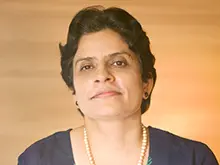
Live Class Instructor: Dr Charu Mathur
Dr Charu Mathur is an Advocate on Record, Supreme Court of India. She has a rich and diverse expertise in corporate, commercial, civil, criminal and constitutional law matters. She has represented parties which include cricketing bodies and educational institutions like IIT Jodhpur, NLU Jodhpur, BPUT Orissa, MPUAT Rajasthan, private engineering and medicine colleges of Gujarat and Orissa.
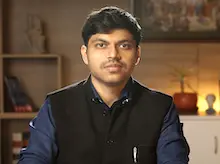
Namit Saxena
Namit Saxena is an Advocate-on-Record, Supreme Court of India. He practises as an advocate before the Supreme Court of India, Delhi High Court, DRT, DRAT, NCLT, NCLAT and other Tribunals and Courts. After graduating in law from Dr Ram Manohar Lohiya National Law University, Lucknow in 2013, Namit was selected to work as a Law Clerk cum Research Associate at the Supreme Court of India and was attached with Hon'ble Mr Justice Kurian Joseph for a period of one year. After finishing his clerkship at the Supreme Court, he decided to join the bar and was offered a position at the chambers of the Solicitor General for India, Mr Ranjit Kumar.
Limit Reached or Trial Expired
You have reached the limit of 2 audit enrollments or your trial period has expired.

![Advocate-on-Record Examination: A Crash Course [c2] Card Image](/asset-v1:EBC+aor-exam-2+2021+type@asset+block@aor_1.webp)




